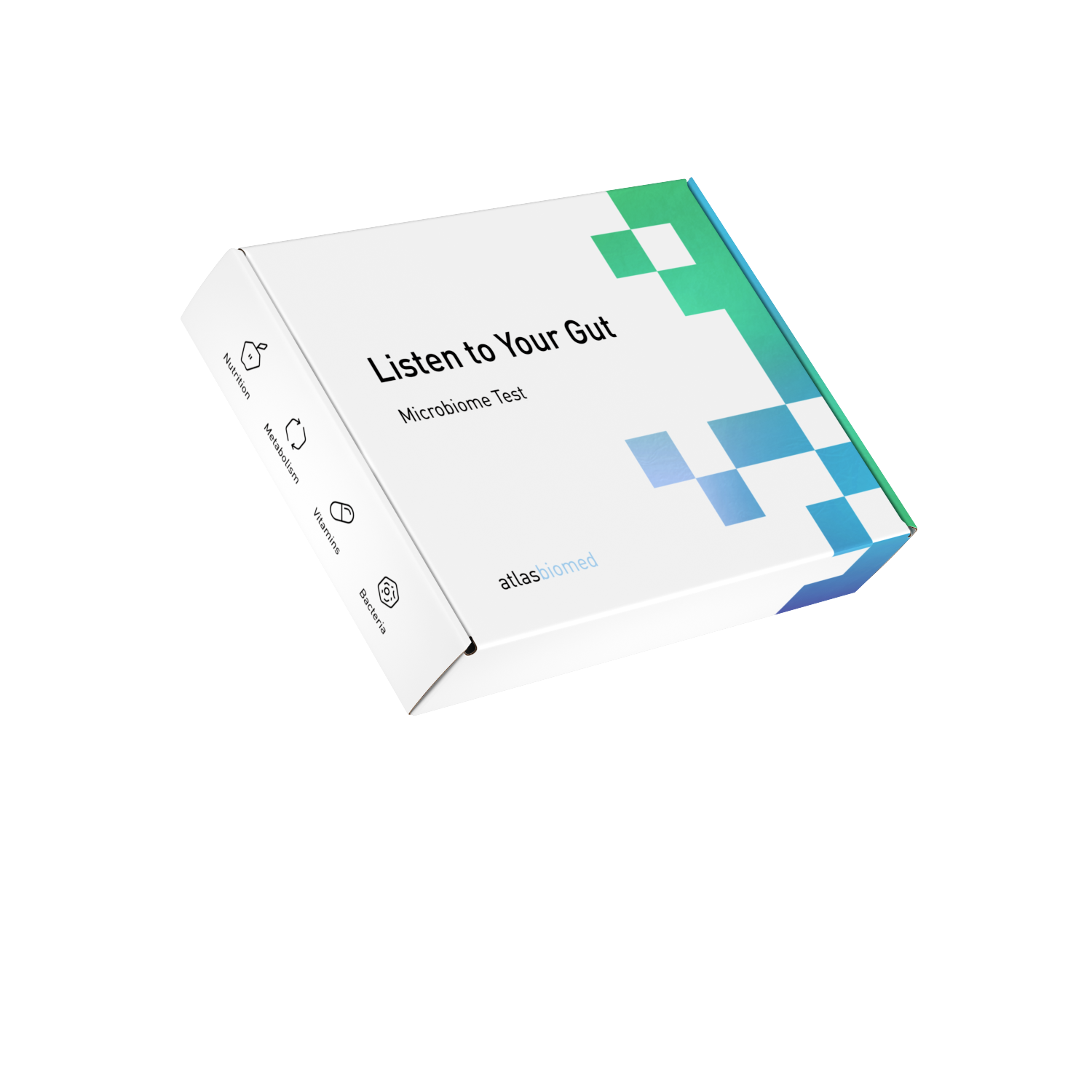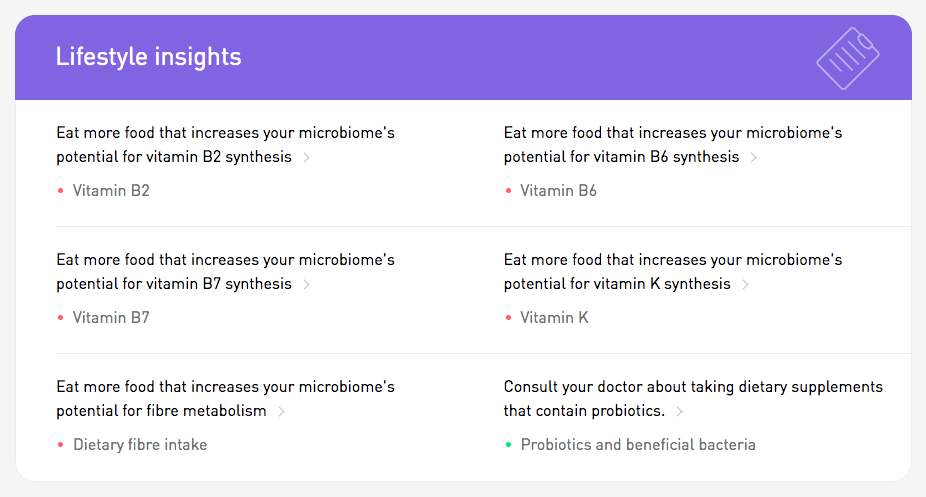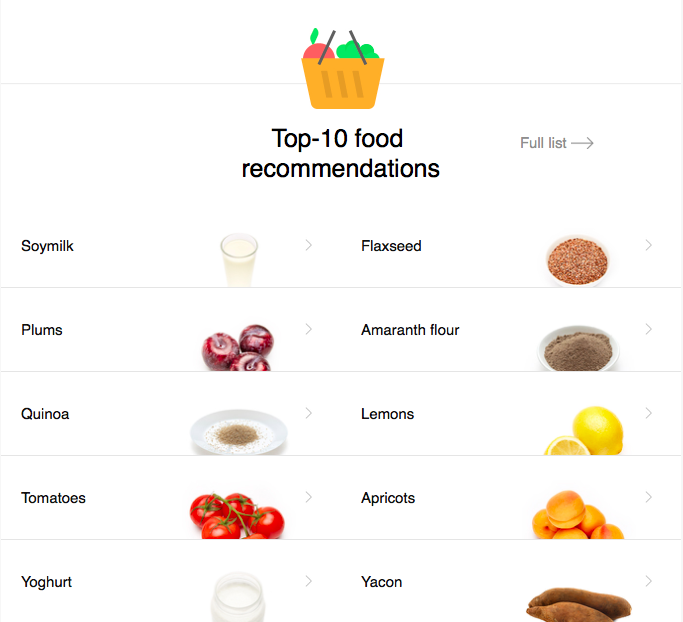We are all unique, which is why personalised nutrition is key! I was delighted to have the chance to try Atlas Biomed’s microbiome test to look at the health of my gut. As an individual who has taken numerous courses of antibiotics in the past for teenage acne and repeated wisdom tooth infections, I was certain that my microbiome could do with some support. There are trillions of microbes within the gut, and the status of our microbiome may affect so many aspects of health.
Whilst there are a variety of test kits on the market, Atlas Biomed really stands out as they are the only at-home microbiome kit which is MHRA certified (The Medicines and Healthcare product Regulatory Agency). The test has been developed by an international team of highly respected scientists and results are supported by a wealth of research papers which are accessible via each account.

TAKING THE SAMPLE
When I received my test kit within the post I was pleasantly surprised how easy it looked. Often test kits can be rather confusing with too many parts and protocols to follow. This can be off-putting and can be a huge barrier for many. Within the pack, I was provided with an instruction manual which was very clear and simple to follow. A paper hammock to collect the stool sample (which made things 10 times easier), and spatula to insert the sampleinto the test tube. All I needed was a pea-sized stool sample which was a pleasant surprise! Lastly, all I had to do was place my sample in a pre-paid box ready to post to the lab, which was great for discretion.
Next up was to fill out an in-depth questionnaire about my current diet and lifestyle which took around 15 minutes in total.
MY RESULTS
My results were displayed in an easy to understand visual manner online, which made the recommendations straight forward to follow.
Disease Risk
I have to say I was relieved to know I had no high risk for disease identified. However, a few things did flag up. Firstly my the composition of my gut microbiome indicated that I had an average risk for developing obesity and type 2 diabetes. I also had a moderate risk for developing ulcerative colitis, Crohn’s disease and coronary heart disease.
Having these risk factors flag up isn’t a diagnosis or that I will definitely develop these conditions. They stated that my current microbiome profile is similar to those who with these conditions, and could be a risk factor for developing these conditions over a lifetime. Other risk factors for disease can include genetics, endocrine function, diet and even lifestyle. What’s great to know however is that, that I can actively improve the composition of my microbiome which will help to reduce the risk.
I was particularly surprised with the obesity outcome and type 2 diabetes risk as I’m naturally slender with no obesity within the family. However, I do suffer from Polycystic Ovarian Syndrome which comes with a degree of insulin resistance and is associated with both of these risk factors, therefore is of particular interest to me. My results showed that I had a greater abundance of bacteria which are associated with the presence of metabolic disorders. I need to increase levels of specific types of bacteria which have protective effects including the Bacteroides, Parabacteroides and even Lactobacillus
Nationality Of My Microbiome
It turns out my nationally is Eastern Europe! I have a microbiome similar to a Russian citizen from rural areas. Research suggests that they follow high-calorie-diets which are rich in fats as well as flour-based and starchy foods such (i.e. oatmeal and potatoes) and consumption of meat. Diet can have an impactful influence on the composition of our microbiome. This means that similar microbiome profiles can be seen in those who follow particular dietary patterns.
Dietary Considerations
This section was hugely helpful to me and indicates which foods I should increase within my diet to target the growth of specific types of bacteria. It’s interesting to note that there isn’t just one type of fibre, there are in fact numerous types of fibres and including a variety of fibre-rich plant-based foods within the diet target a variety of different beneficial strains of bacteria to encourage growth. In fact, according to research from The American Gut Project, our gut microbiota thrives if we aim to consume 30 or more different varieties of plant foods each week!
Rainbow coloured plant-based foods provide a range of plant chemicals called polyphenols which also encourage our beneficial bacteria to flourish and grow. Therefore eating the rainbow and counting the colours within our diet can really encourage diversity. A lack of diversity with the types of bacteria within the gut is thought to be associated with the disease, and a more diverse microbiome is thought to be a healthier and more robust microbiome.
I currently follow a moderate carbohydrate, higher healthy fat and protein diet and personally find it helps with the management of my PCOS symptoms. However, I am acutely aware than I need to increase the variety of fibre rich foods within my diet and my results have only further highlighted this. I am a creature of habit and love consuming the same foods over and over again, for example, I will have the same plain porridge for breakfast almost every day! My results have shown that I need to eat more foods which increase my microbiome’s potential for fibre metabolism and the synthesis of vitamin B2, B6, and B7.
Atlas Biomed has made things super easy, with the way they display the results. I am now sent a personalised list of 10 different plant-based foods to include within my diet weekly, that encourage the growth of specific strains which have protective effects and optimise health. Some of these foods such as quinoa and brown rice I actually have in my cupboard, and can easily include within my diet, but I find the weekly email reminders trigger me take action and my personalised recommendations into practice!
All in all, I was really happy with the ease and practicality of using Atlas Biomed Microbiome Test and it’s something I would be recommending to my clients.
To learn more about AtlasBiomed: https://atlasbiomed.com/uk
Disclaimer: this product was gifted for the purposes of a review.






Hi,
I’ve found this post (and your site) after searching for a review of this product- thanks for sharing it! As someone who suffers some gastrointestinal distress on a daily basis, I’m curious about the efficacy of such a test and and any dietary changes which are made following it. I’m really curious to see if you’ve adapted to the recommendations and if you’ve noticed a difference or retested after some time? Similarly, is this something that you recommend to your clients to help identify how you can best help them? Many thanks!